Why is Selahattin Demirtaş Behind Bars?
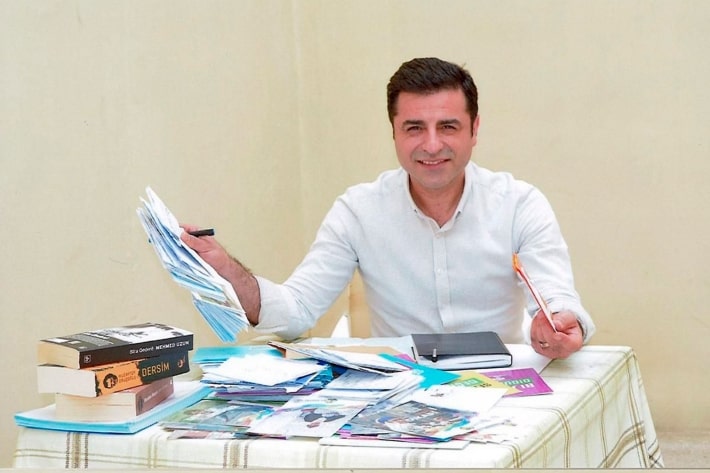
Although the European Court of Human Rights has ordered his immediate release, former HDP Co-Chair Selahattin Demirtaş has been behind bars for nearly five years now. Last week, the Council of Europe warned Turkey for not abiding by ECHR rulings. How did things get here?
One of the most prominent political leaders in Turkey in the last quarter of a century, Selahattin Demirtaş has been in prison since November 4, 2016. Despite the European Court of Human Rights (ECHR) call for his “immediate release” and district courts’ rulings demanding his release, Demirtaş’s release was prevented every time by various “counter moves”. The initial trial, under which he was first arrested, has now been combined with a more recent trial, dubbed as the “Kobani Trial”. As a result, the judiciary proceedings have returned to square one.
The third hearing of the trial will be held on June 14. The trial had begun with much controversy and tension: At the first hearing on April 26, the panel of judges did not allow some of the lawyers into the courtroom. In reaction against these restrictions towards the defence, all lawyers left the courtroom in protest. On May 18, the second hearing was held. The lawyers and the politicians on trial in the case claimed that the panel of judges was not “independent and impartial” and demanded the recusal of the judges, as well as their release. These demands were rejected by the court.
Since the judiciary proceedings could not begin in the first two hearings, it is difficult to say whether things will be different at the third hearing.
In the meantime, last week, the Council of Europe’s Committee of Ministers discussed Turkey’s failure to implement ECHR rulings. The commission announced that Turkey would face sanctions in case it continues to disregard these rulings, beginning with the orders for the release of civil society leader and businessmen Osman Kavala – behind bars for 3,7 years – as well as Demirtaş.
Council of Europe’s Committee of Ministers gave Turkey until June 22 to implement the ECHR Grand Chamber’s ruling concerning Selahattin Demirtaş and to present an action plan featuring measures to strengthen judicial independence in Turkey.
The Committee also demanded the translation of the Court of Cassation ruling upholding Demirtaş’s imprisonment of 4,8 years for “spreading propaganda for a terror organization” – despite its decision dated March 9 -11 – and comprehensive information on the repercussions of the ruling. The committee will continue its review of the case at its September meeting.
ECHR had announced its first ruling for Demirtaş’s application on November 20, 2018, stating that Demirtaş’s rights to “freedom and security” and “to vote and be elected” were violated. Referring to Article 18 of the European Convention on Human Rights, the court concluded that Demirtaş’s detention was based on not legal but political reasons. With this ruling, ECHR found Turkey guilty of violating Article 18 of the ECHR for the first time.
As Demirtaş’s release was being awaited since Turkey is obliged to comply with the ruling, the President and AKP Chairman Recep Tayyip Erdoğan made a statement. Regarding the ECHR ruling, Erdoğan said, “It does not bind us. We will make a counter move and put an end to the matter.”
After Erdoğan’s statement, Ankara 19th High Criminal Court refused to implement ECHR’s decision concerning the immediate release of Demirtaş, imprisoned pending trial. As such, Erdoğan’s words were put into effect with this court ruling.
Two months before the ECHR ruling on Demirtaş, the trial, in which he was sentenced to 4 years, 8 months for “Spreading propaganda for a terror organization” on September 7, 2018, took a new turn. The court of appeal upheld the said sentence on December 4, 2018. As a result, Demirtaş became a convict under the scope of another trial.
Release Order Before the ECHR Hearing
Upon objections filed due to the district court’s rejection to implement the release order, ECHR Grand Chamber set a hearing date for September 18, 2019, regarding Demirtaş’s file. Just before this hearing, Ankara 19th High Criminal Court ruled to release Demirtaş, whose release it had rejected on September 2, 2019. However, Demirtaş was not released from prison since he was then convicted for “spreading propaganda for a terror organization” in another trial.
The Grand Chamber issued an even harsher decision on December 22, 2020. It reiterated the need for Demirtaş’s “immediate release” in order to remedy the violation of his rights. Concluding that European Convention of Human Rights, Article 5, paragraphs 1 and 3 were violated, the Chamber repeated that Demirtaş’s detention “was due to not legal but rather covert political reasons”. With this ruling, it was confirmed that Demirtaş is “behind bars on not legal but political grounds”.
However, despite this ECHR ruling, Demirtaş is in prison for more than four years and seven months now.
‘Never Forget the Elections of June 7, 2015!’
Another recognition of the fact that Demirtaş is behind bars for political reasons came in a speech by Erdoğan at AKP MPs’ Group meeting on June 9, 2021, where he said, “Never forget the elections of June 7, 2015.” Two days before that, on the sixth anniversary of June 7, 2015, Court of Cassation’s Chief Public Prosecutor sent to the Constitutional Court an indictment where he demanded HDP be shut down and 451 politicians be banned from politics.
Demirtaş Rearrested on the Day the Release Order was Issued
When the first judicial reform package drafted as part of the so-called “Judicial Reform Strategy Document” was published in the Official Gazette and came into force, Demirtaş’s lawyers’ application to Istanbul 26th High Criminal Court for his release received a favorable response.
However, even before the decision reached the enforcement prosecutor’s office, another “counter move” was enacted.
During the so-called peace process, the ISIS assault on the northern Syrian city of Kobani had been protested in dozens of cities across Turkey, especially in the Southeast. According to official statements, 37 people were killed during the protests which took place in 35 provinces and 96 districts. In the following years, the government blamed HDP, which had called people to stage street protests, for these deaths.
On September 20, 2019, Ankara Chief Public Prosecutor’s Office decided to launch a new investigation into the Kobani incidents. On the day that Demirtaş was supposed to be released as per the ruling of the aforementioned Istanbul court, a second arrest warrant was issued for him under the investigation into the Kobani protests. HDP Co-Chairs Demirtaş and Figen Yüksekdağ were arrested pursuant to an arrest warrant issued by Ankara 1st Criminal Court of Peace, upon the request of the said prosecutor’s office. Thus, Demirtaş was rearrested under the scope of the Kobani investigation before the release order could take effect.
The 3,500-page indictment consisting of 234 folders drafted by the prosecutor’s office on December 31, 2020 was accepted by Ankara 22nd High Criminal Court in January 2021.
In the indictment, charges are leveled against 108 people, 28 of whom are already in prison, including Demirtaş and Yüksekdağ; Diyarbakır Metropolitan Municipality’s ex-Co-Mayor Gültan Kışanak; Ayhan Bilgen dismissed after being elected the Mayor of Kars and replaced by a government-appointed trustee; former HDP deputies Sırrı Süreyya Önder and Ayla Akat Ata; and Sebahat Tuncel, imprisoned under another case.
2,676 individuals and institutions are involved in the case as complainants.
In the indictment, the defendants are charged with “seeking to destroy the unity and integrity of the state,” “murder,” “attempted murder,” “looting,” “retention by force,” “damaging property,” and “damaging public property.” 108 defendants face 38 aggravated life sentences and 19,680 years in prison each, based on 29 different charges.
However, in 2016, in the previous investigation against Demirtaş concerning the Kobani protests, Ankara Chief Public Prosecutor’s Office had stated that the issue was outside its jurisdiction and forwarded the file to Diyarbakır Chief Public Prosecutor’s Office. The investigation was added to the main indictment as document no. 31.
If Demirtaş is not released in the Kobani case for which he is imprisoned and is handed down a sentence at the end of the trial, he will stay in prison as a convict. However, even if he does not receive a sentence in this case, there are many other cases which could keep Demirtaş in jail in the future.




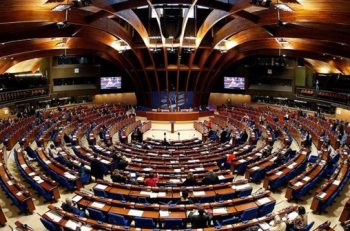
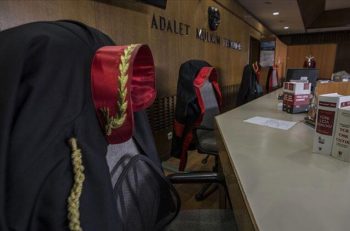
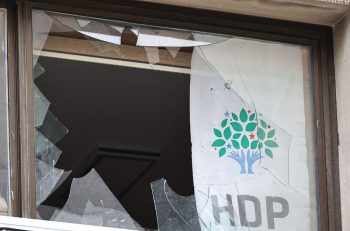
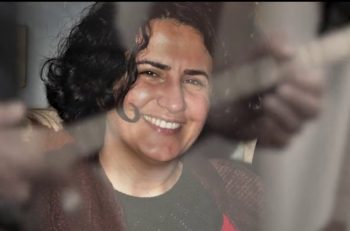

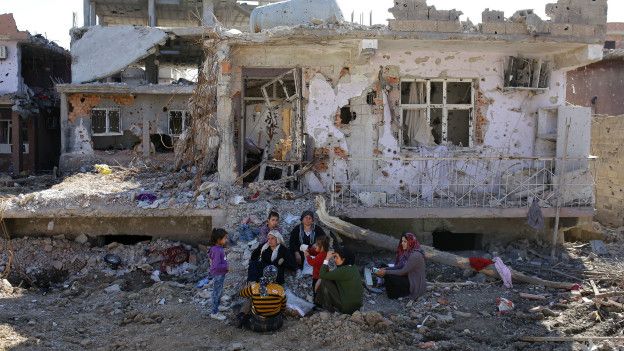

Bizi Takip Edin